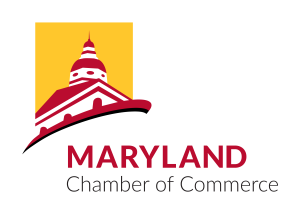
Annapolis, MD — Gov. Wes Moore and top Democrats in the legislature have pushed back on claims from members of the business community that a new 3% tax on information technology and data consulting services will hurt the governor’s mission to make Maryland more economically competitive and a hub for technology and similar industries.
Members of the state’s business community have raised concerns about the new “tech tax” hurting small businesses and providing a disincentive to companies coming to Maryland, potentially running counter to the governor’s plans for driving growth in the state’s stagnant economy.
The governor, though, said that companies he’s met with recently are excited about the procurement and permitting reforms that this administration has enacted and proposed, about how his administration has called out life sciences, IT and aerospace and defense as “lighthouse industries” for the state, and about recent investments his administration and its partners have made in these industries.“For a lot of these industries, we all understand their importance in larger economic growth. We all understand their importance in making sure we’re diversifying our economy off of Washington,” Moore said to reporters Thursday. “And they are seeing a level of support from this administration that they have not seen in years. I think they really do appreciate that.”
The governor and his team have claimed that Maryland is already emerging as a global leader for quantum technology research and innovation, life sciences and aerospace engineering.
Moore also said Thursday that company leaders with whom he’s met understand that Maryland must “modernize” its tax code to account for the decades-long shift from a state with a goods-based economy to one that’s driven by people paying for services.“That’s why they’ve been good partners inside this work,” he said.
After the governor and top Democrats in the legislature announced their agreement on a budget plan that included the tax on IT and data consulting services, a spokesperson for the Maryland Chamber of Commerce said the measure posed a threat to the state’s competitiveness and would undermine the Moore administration’s push to strengthen the technology and innovation sector.
The chamber raised concerns about technology and IT companies facing direct taxation on their core services, increased costs for defense contractors hurting their competitiveness for federal contracts and particular harm to small businesses without in-house tech teams.
Tasha Cornish, who is the executive director of the Cybersecurity Association of Maryland, said the tax directly contradicts the state’s growth strategy for the tech industry.
“The tax will create a significant disincentive for technology companies to invest and grow within the state,” Cornish wrote in an email Thursday. “The increased cost of doing business will drive innovation and talent elsewhere, hindering Maryland’s ability to attract and retain high-growth technology firms.”
State analysts have projected that the new tax will generate about $500 million next fiscal year. It’s part of a plan, which the House of Delegates passed this week, to raise more than $1 billion to help balance the budget amid a roughly $3.3 billion deficit. Democrats have also agreed to more than $2 billion in budget cuts.
“At the end of the day, we have to sustain government as appropriately as we can, and that’s why these changes are being made,” Senate President Bill Ferguson said to reporters during a recent press conference.
Ferguson said that companies prioritize having access to strong workforce pipelines, reliable transportation infrastructure and a “world-class airport where they can make international deals,” referencing BWI Thurgood Marshall Airport, among other factors, when weighing where to set up shop.
Democrats have said that Maryland has the assets — including highly regarded academic institutions, federal research facilities and private sector investments — necessary to attract companies and grow the lighthouse industries the governor has identified.
“It’s short-sighted to think that tax rates are the only things that are going into the decision about where to locate and grow,” Ferguson said. “Do they matter? Of course, they matter on the margins. But, creating a strong community that’s safe, that has great infrastructure, that has a great workforce, that’s what every business leader says that they want.”



